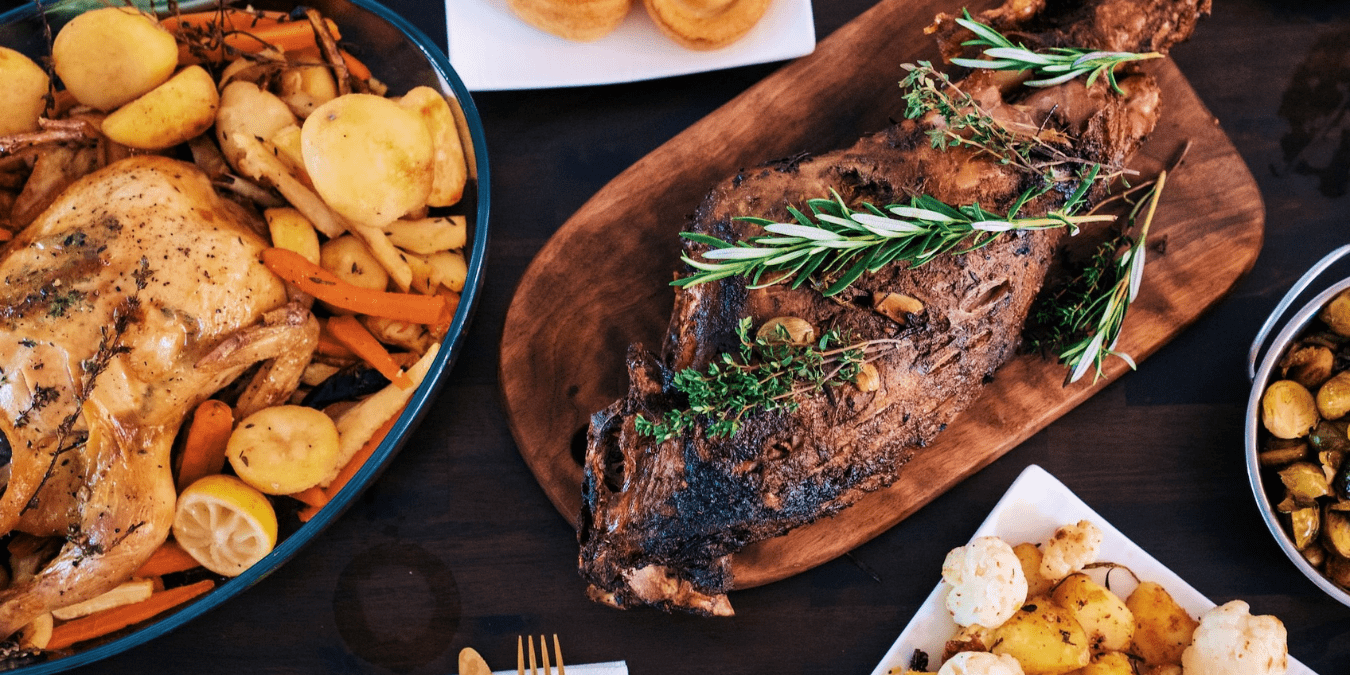Whether you live in Portugal or abroad, Easter doesn't taste the same without the traditional delicacies of the season.
From north to south, during the Holy Week, typical dishes are prepared that bring children and adults together at the table. When it is not possible to visit your home country, we can at least celebrate bring the best from Portugal to keep the tradition alive.
Therefore, we have prepared with passion, a gastronomic, delicious and traditional, journey to bring your business the best selection of Portuguese and Brazilian products.
From region to region, all the recipes have something in common: the abundance of food and the joy of those who taste them. And on the Portuguese tables there is a little bit of everything, from sausages, to liqueurs, lamb, or goat meat, leitão (a kind of suckling pig) to the traditional Bola (a kind of meaty bread), the Folar (a sweet Easter cake) and sweet dishes such as Arroz Doce (rice pudding), Pão de Ló (sponge cake) and Amêndoas Portuguesas (Portuguese almonds), which help to celebrate the end of Lent.
Discover these flavours and surrender yourself to the Portuguese and Brazilian products that Atlantico has available for its customers.
MINHO
In Minho, north of Portugal, the celebrations are usually led by the Compasso, a group guided by the local priest, which passes by every house offering the blessing of the cross.
The inhabitants prepare many dishes and decorate the tables to welcome him: Bola (a kind of bread stuffed with meat and sausages), roasted lamb and the traditional Folar.
TRÁS-OS-MONTES
In Trás-os-Montes, Folar is also the star of the feast, but it has something special: it is stuffed with veal, chicken, or rabbit meat, with smoked ham and Salpicão (a smoked sausage), which enriches the pastry, giving it a very characteristic flavour.
While in most cities, such as Bragança or Mirandela, the Folar is round and large, in places like Freixo de Espada à Cinta they are smaller and flatter.
BEIRAS
In Beiras, the Folar is prepared with fennel and cinnamon and decorated with boiled eggs or painted with colourful drawings.
In Covilhã, people also bake Broinhas, olive oil cake and sweet Easter empanadilhas, small, shaped half-moon dough, filled with almonds and walnuts.
In this region, as in some parts of the Alentejo, it is normal not to eat meat until the Enterro do Bacalhau (translated as the "Burial of the Codfish"), which marks the end of Lent.
From then on, meat dominates the dishes and lamb, or kid are the real gastronomic stars.
ALENTEJO
At Alentejo, lamb and kid are also the main elements of this festive season and here all parts of the animal are used to prepare delicious dishes.
The blood and the innards are used to prepare Sarapatel and the brains are considered a real feast for the taste buds.
Here they also like sweet recipes and there is no shortage of Queijadas (small egg and cheese cakes), Bolos Fintos and Folar.
In Elvas, the population makes a different type of Folar and gives it animal shapes (lizards, lamb, chicks, and doves), decorated with white almonds and hard-boiled eggs.
In Castelo de Vide they use their own recipe to create Boleima, a sweet pastry, filled with sugar, cinnamon, and apple. We can also find heart shaped Folar, usually offered to loved ones.
ALGARVE
Algarve keeps the same dishes and traditions as the rest of the country, however, there is one recipe that has a twist. The traditional Folar escapes tradition and is called Folar de Folhas, prepared with cinnamon, brown sugar, lemon, and butter.
Apart from the typical savoury and sweet dishes that we can find in each region, there are small traditions that are common to the whole country and that revolve around two elements: chocolate and almonds.
During Easter, parents, godparents, and grandparents spoil the little ones with chocolate eggs (from tiny to giant eggs), chocolate figures, such as the famous Easter Bunny, and almonds.
According to tradition, this should be the gift offered by godfathers to their godchildren: almonds of any shape or variety, from natural almonds, to sugar-coated or chocolate-coated, filled, coloured almonds (such as the Vieira de Castro ones)
Everything you need to offer your customers an Easter with flavour and tradition.



